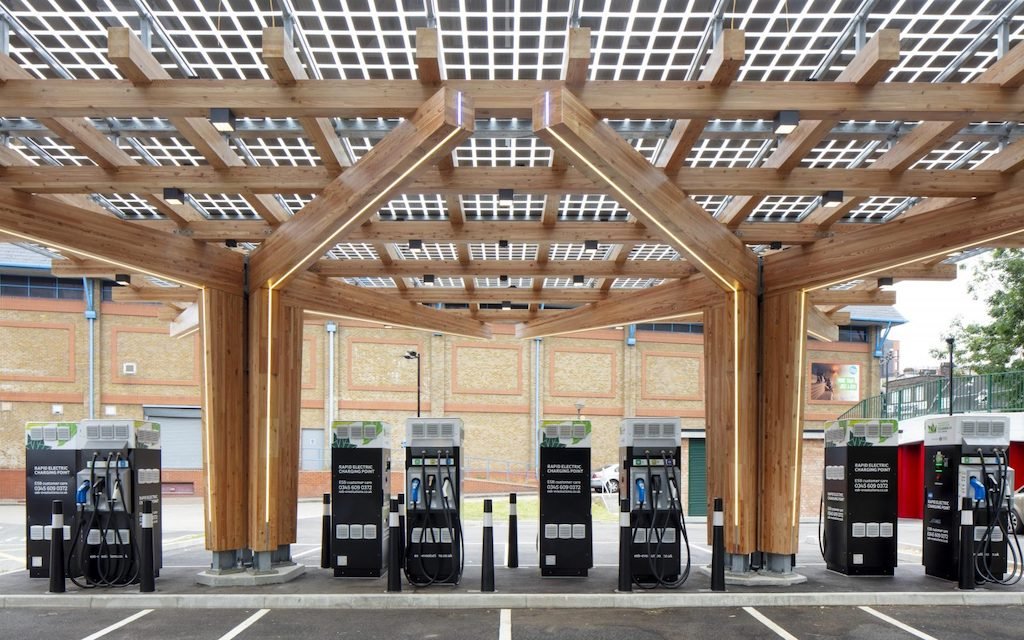Khan commits to redouble London’s EV charging efforts and go “even further, even faster”
In a keynote speech at the recent ‘Evening Standard Plug It In’ event at the Design Museum, Mayor of London Sadiq Khan set out his plans for how London will become a cleaner, green and healthier city.
As part of these plans, Khan announced that City Hall has identified sites on the Transport for London Road Network that will be suitable for a further 100 ultra-rapid charge points. The first 25 of these were to be put out to tender by the end of November, and 75 more will follow by the end of April next year, with the aim for all 100 to be operational by the end of 2023.
Greater London currently has more than 11,000 public charge points of which over 820 are rapid or ultra-rapid. The figure accounts for roughly a third of the UK’s total and represents a 170% increase from 2019.
Khan said that for progress to continue it is essential that the right sort of EV charging points are built at pace to meet the expected requirement of 40,000-60,000 charging points by 2030, with around 10% of these being rapid charge points. London is on track to meet this target, he said, but the 100 new ultra-rapid charge points will help facilitate this ambitious goal.
Ultra-rapid charge points can deliver a full charge in around 20-30 minutes and are most suitable for high-mileage users, such as emergency services, taxis and private-hire vehicles, delivery drivers and local businesses.
“I’m in no doubt that the shift to electric vehicles is imperative to cleaning up our air and bringing down harmful emissions. As a city, we’ve travelled an impressive distance in a relatively short period of time in terms of rolling out the necessary infrastructure and encouraging the uptake of electric vehicles,” Khan said.
“But the gravity of the threats we face from the climate crisis and toxic air pollution demand that we now redouble our efforts and go even further, even faster.
“It’s vital we don’t take our foot off the pedal now and lose momentum. That’s why my administration has published its Electric Vehicle Infrastructure Strategy and set a target of quadrupling – at a minimum – the number of public charge points in London by 2030.
“Freeing up public land to deliver more charging points, and charging hubs, will be crucial to hitting and, hopefully, exceeding this target.”
The Mayor’s climate action also aims to create new green jobs – more than 4,500 jobs are expected to be created in supporting charging infrastructure in London alone.
Further jobs will also be created through UK supply chains and associated industries. Electrifying London’s bus fleet by 2030, for example, could drive substantial bus orders in manufacturing locations such as Ballymena, Scarborough, Falkirk and Yorkshire, representing a gross investment into bus manufacturing of £4 billion and supporting 3,000 jobs.
“We must deepen our collaboration,” Khan continued. “To make it easier and more convenient for Londoners to go electric. To establish our city’s reputation as a world leader in the delivery of charging points and infrastructure.
“And to ultimately build a better London for everyone – a city that is greener, safer, fairer and more prosperous for all. This is my vision for the future of our city and its road network and I hope that, together, we can bring it to life and usher in a new, healthier, electric age for London.”
Khan has also confirmed that he will expand the Ultra Low Emission Zone (ULEZ) London-wide. The expansion will come into effect on Tuesday 29 August 2023 and will operate across every London borough up to the existing Low Emission Zone boundary.

